Climate change: Should green campaigners put more pressure on China to slash emissions?
- Published
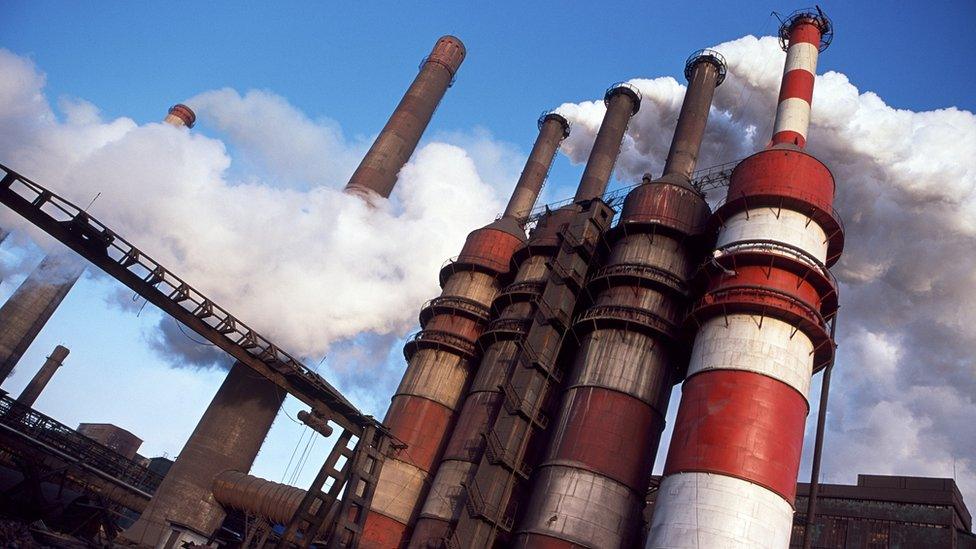
China is the world's largest emitter of greenhouse gases
China will be urged at the UN next week to speed up the timetable for curbing its planet-heating carbon emissions.
It will be nudged by the UK Prime Minister Boris Johnson, who's experiencing climate pressure himself from activists blocking motorways.
But is the UK, with its world-leading emissions targets, the right target for demonstrators?
China produces 28% of global emissions and the UK just 1%. So shouldn't they be picketing the Chinese embassy instead of the M25 motorway?
On the face of it, that seems a reasonable question. And some veteran activists would indeed support a well-judged China protest - we'll come to that later.
Furious response
But when I initially asked the radical green group Extinction Rebellion (XR) if they had considered demonstrating against China, it triggered a furious response.
An XR member tweeted accusing me of perpetuating anti-Chinese racist stereotypes and failing to report climate change properly.
Why so vitriolic?
Well, there are two reasons. The first is practical: climate campaigning groups like Greenpeace and WWF have offices in Beijing and if they rattle China too hard, they could be swiftly closed down.
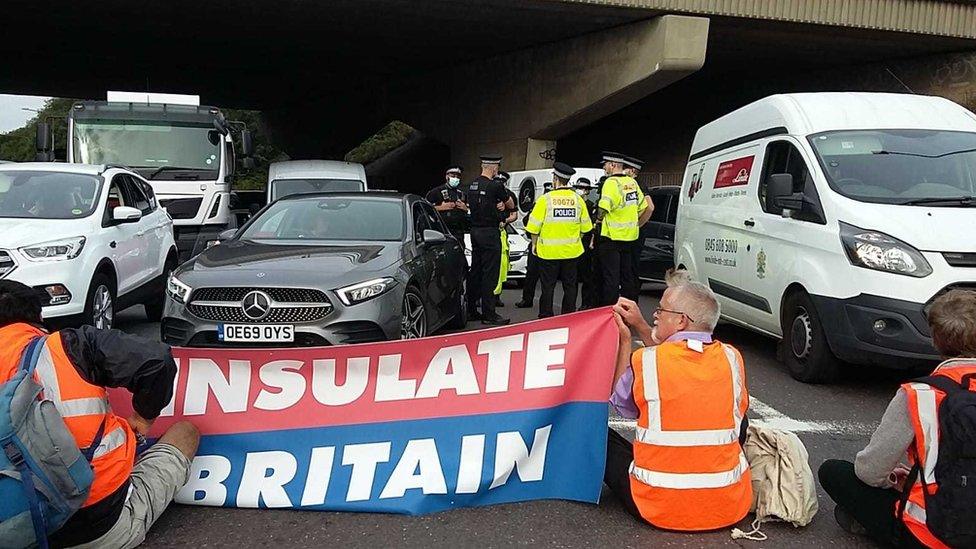
UK climate activists picketed the M25 motorway around London
The second reason touches a sore spot on the geopolitical history of climate change. For the purposes of climate negotiations, China has been regarded as a developing country because major industrialisation occurred from the mid-20th Century - after some other countries.
Picketing the Chinese embassy would ostensibly transfer blame for the current crisis on to Beijing - while easing pressure for carbon cuts in historically wealthy nations such as the UK.
That's exactly what some newspaper columnists want.
Rich countries caused most warming
But it runs counter to global climate diplomacy, which acknowledges that it's rich countries with a longer history of industrialisation that have caused most of the warming so far.
What's more, much of the CO2 on China's carbon accounts is created by manufacturing stuff that Western consumers buy.
So much stronger action from Beijing is certainly essential to prevent global heating getting even worse. But to be fair, China's not quite as blameworthy as it seems.
Your device may not support this visualisation
The issue of fairness is embedded in international negotiations on climate action. During early talks in the 1990s, countries were divided into Annex 1 and Non-Annex 1.
Annex 1 - the rich nations and eastern Europe - agreed to take responsibility for their historic pollution by cutting emissions on home ground.
Non-Annex 1 - developing countries including (then) China agreed to begin reporting on their emissions - not cutting them - in return for financial aid.
Turbo-charged economy
Thanks to its turbo-charged economy China's now emitting more CO2 than all rich nations put together, according to some estimates.
The total per person is still half that in the USA, external, but China's overtaken the UK (if you don't take into account the CO2 emitted manufacturing exported goods).
President Xi Jinping has offered to freeze emissions growth by 2030, but scientists say that's not enough to evade deadly climate change.
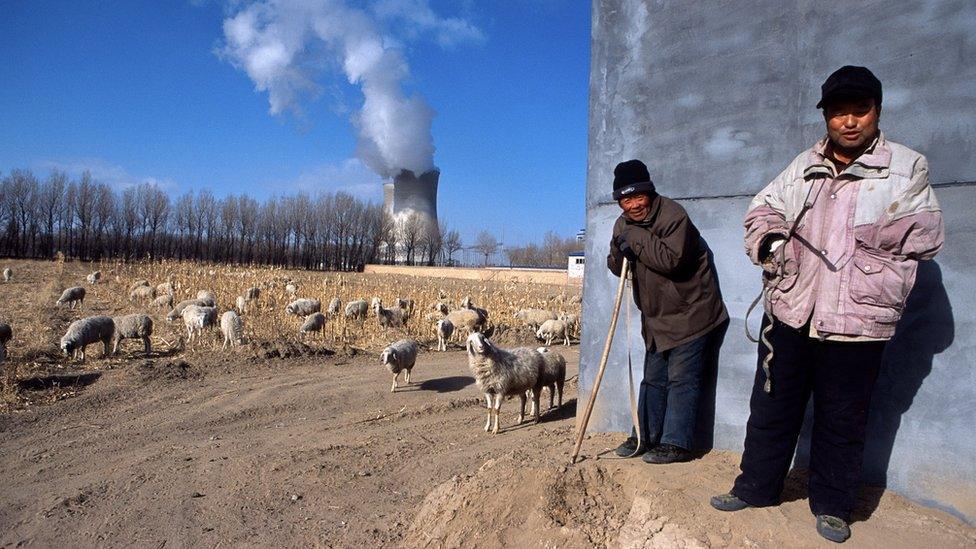
China has the world's second largest economy, but there is significant inequality in the country
In other words, China may consider it unfair to be expected to slash emissions at this stage of its economic growth - but if it doesn't, the planet is in even more serious trouble.
This challenges the narrative of green groups, which have typically reserved their fire for the rich who caused the problem.
In today's dire circumstances, should they reconsider? I put the question to environment campaigners.
Right to protest
WWF chief executive Tanya Steele told me: "As an organisation we support the right to protest. But we should focus on global collective responsibility - not on any single nation". WWF Beijing won't exist if she appears anti-Chinese.
Neil Verlander from Friends of the Earth said: "The UK government, with its historic contribution to climate change, is the focus of campaigning, as this is where we have the biggest influence."
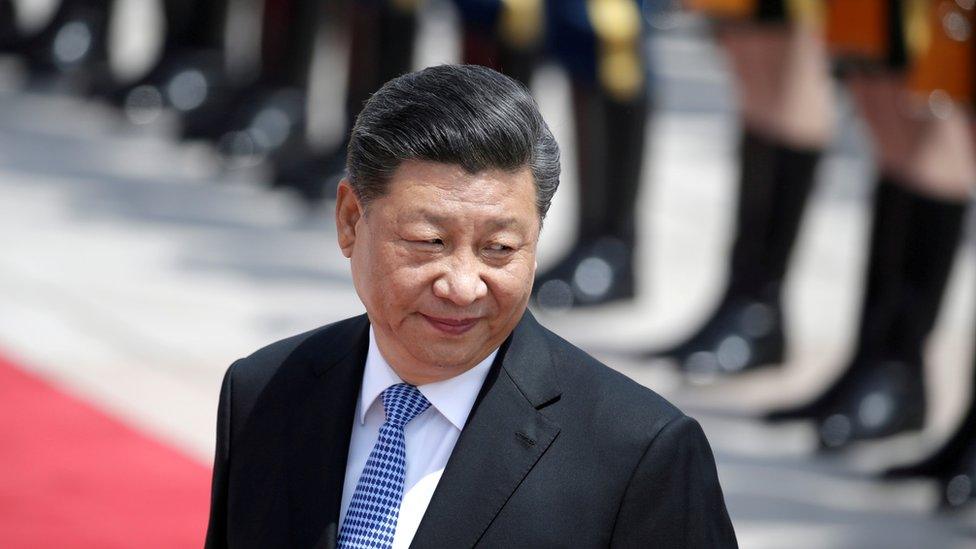
China's President Xi Jinping has offered to freeze emissions growth by 2030
"We don't have any plans to picket any embassies."
A spokeswoman for Extinction Rebellion UK told me: "We mustn't allow those trying to frustrate action to use China as a scapegoat and further excuse their own responsibility.
"However, if a local or affiliated group chose to protest against the Chinese government, if the conditions were appropriate then we might well support."
Greens 'gone soft'
Some veteran activists and commentators think the green groups have gone soft.
They believe a strategic re-think is needed - but how can they exert pressure on China without giving succour to climate naysayers in the UK?
Journalist Geoffrey Lean, who pioneered environment reporting in the UK, shares one idea.
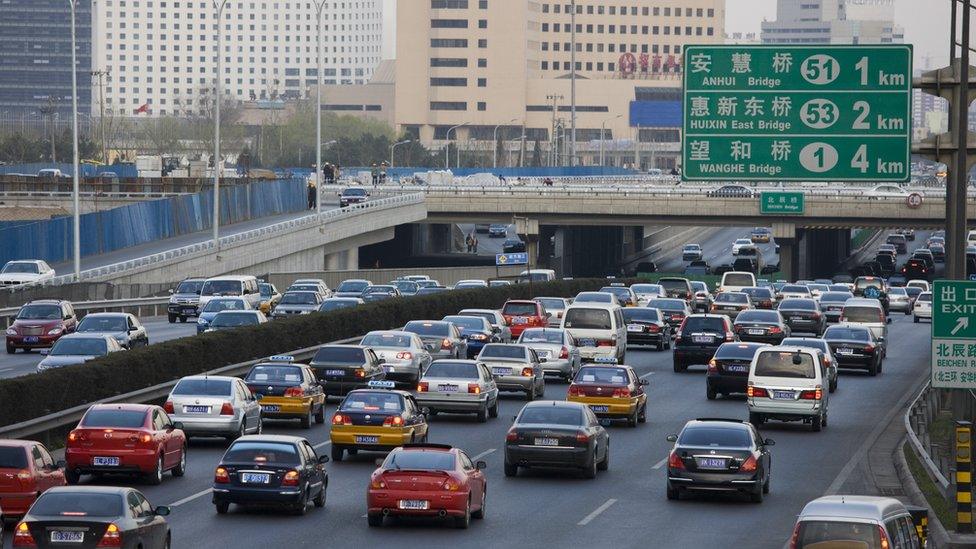
"I would put small, polite pickets at every Chinese embassy worldwide. The Chinese authorities listen most to something coming from several different sources at the same time.
"It would also preserve Chinese "face" more than a big single demonstration, and would almost certainly not make news - so it wouldn't be picked up by the deniers."
'Great Helmsman please cut emissions'
Polite protest banners, he says, might appeal to Chinese pride with slogans such as "China - please save the climate!" or "Great Helmsman, please cut emissions for our children."
This plan appealed to former Friends of the Earth founders Tom Burke and Jonathon Porritt.
Both agreed that green groups should protest against Chinese emissions.
Burke said: "I would definitely campaign at the Chinese embassy. NGOs nowadays have grown fat and corporate. Sometimes they need to go back to basics."
Veteran Greenpeace strategist Chris Rose said: "In the old days we didn't do much more than biting ankles. But sometimes there's a case for ankle-biting - and China is one example… along with India."
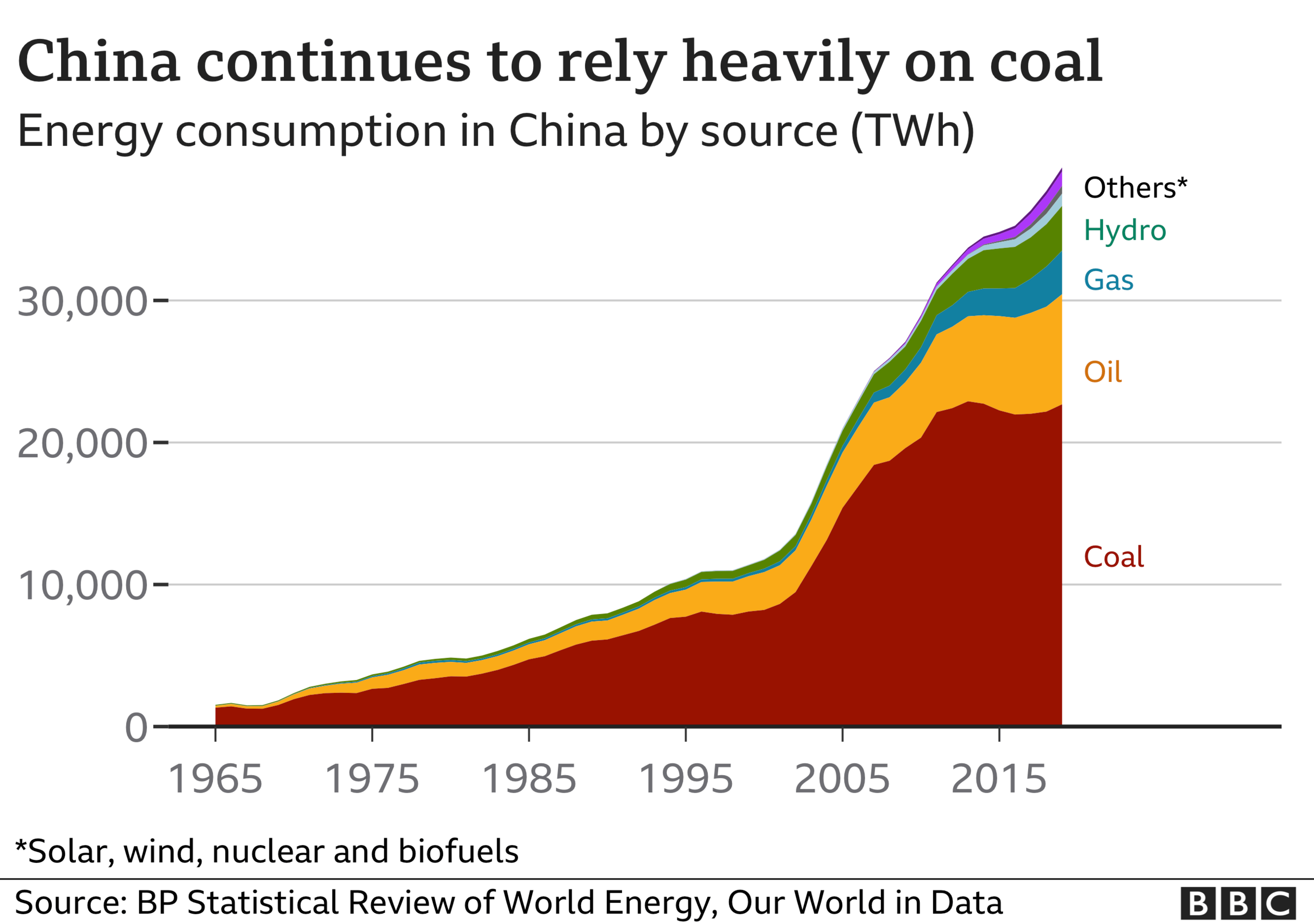
Any action much be subtle, though, according to another long-standing independent campaigner, Cindy Baxter. She pointed out the President Xi had committed to strong action to curb coal power, but that provincial governments had ignored him.
She warned: "If there was a blockade outside Chinese embassies, the right wing columnists would say 'told you so'. That would be counter-productive. I would put a small picket out there - not a huge demonstration."
Whether or not the green groups decide to switch tactics, one thing is in no doubt - the world needs urgent emissions cuts from China - and indeed every other nation.
The website Climate Action Tracker estimates that global emissions in nine years' time are set to be roughly double the level required to meet the goal of holding the temperature rise to 1.5C.
And that's when a temperature rise of just 1.1C has already been causing death and destruction.
Follow Roger on Twitter., external